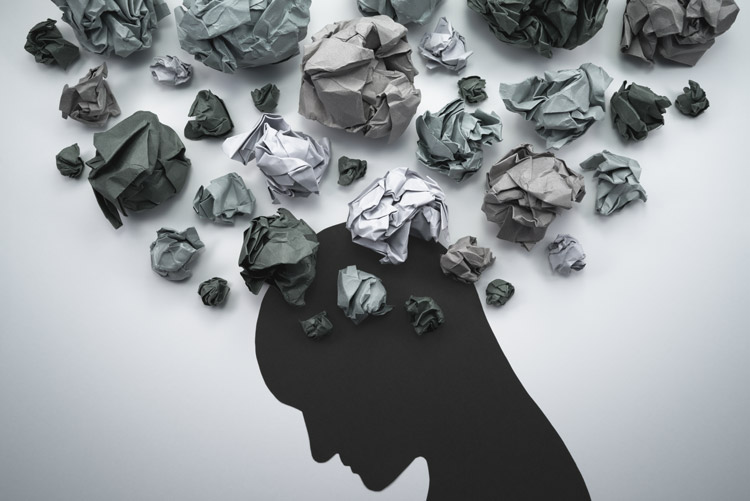 Throughout the United States, May is observed as Mental Health Awareness Month to bring attention to the role mental health care plays in a person’s overall sense of wellbeing. Started in 1949 by Mental Health America (MHA), the observance encourages a better understanding of mental health disorders and promotes access to screening and treatment options.
Throughout the United States, May is observed as Mental Health Awareness Month to bring attention to the role mental health care plays in a person’s overall sense of wellbeing. Started in 1949 by Mental Health America (MHA), the observance encourages a better understanding of mental health disorders and promotes access to screening and treatment options.
4Mind4Body
The theme for 2019 is 4Mind4Body, which is an expansion of the message first shared in 2018. 4Mind4Body stresses the role of self-care in managing mental health for patients as well as their caregivers.
Types of Mental Health Disorders
Mental health disorders are disorders that affect a person’s thinking, feeling, and behavior. There are over 200 different identified forms of mental illness. The most common are:
- Addiction: Although most of us think of addiction in terms of being addicted to drugs or alcohol, process addictions are also a type of mental health disorder. This includes compulsive behaviors such as gambling, shopping, and playing video games if they are causing problems in a person’s life and they are unable to self-regulate the behavior.
- Anxiety disorders: Someone with an anxiety disorder experiences extreme fear, dread, and panic related to certain objects or situations. Their response differs from normal anxiety because it is not appropriate for the situation, can’t be self-controlled, and interferes with regular functioning.
- Eating disorders: Anorexia, bulimia, and binge eating disorder are mental illnesses characterized by extreme attitudes and behaviors surrounding food and dietary choices.
- Mood disorders: Mood disorders involve persistent feelings of sadness or fluctuations of emotions from extreme happiness to extreme sadness. Depression and bipolar disorder are the two most common mood disorders.
- Obsessive-compulsive disorder: People with OCD have disturbing thoughts known as obsessions and rituals called compulsions that dictate their daily activities. The most common type of OCD involves an unreasonable fear of germs and extreme cleaning behaviors.
- Personality disorders: This type of mental illness is characterized by extreme and inflexible personality traits significantly differing from the expectations of society and interfering with a person’s normal functioning. Antisocial personality disorder and paranoid personality disorder are two types of personality disorders.
- Post-traumatic stress disorder: Also known simply as PTSD, this is a condition that can develop after someone experiences a traumatic event—such as being the victim of an assault, being severely injured in a car accident, or living through a natural disaster. It is characterized by intrusive flashbacks related to the triggering trauma.
- Psychotic disorders: Characterized by hallucinations and delusions, schizophrenia is one example of a psychotic disorder.
The National Alliance on Mental Illness (NAMI) reports that one in five people will struggle with mental illness at some point in their life. Many suffer in silence, but working together to break the stigma associated with mental health conditions will encourage everyone to get the help they need.
Treatment for Mental Health Disorders
Mental health disorders are generally considered chronic conditions. They can’t be cured the same way you’d give a person antibiotics for a persistent sinus infection, but they can be managed effectively.
In most cases, treatment includes therapy to promote the development of coping skills that help a person better manage their condition. This includes cognitive behavioral therapy (CBT) as well as holistic treatments such as art or music therapy.
Medication, while not necessary in every case, may be recommended. All medications should be taken exactly as prescribed and any side effects should be reported promptly.
If someone suffers from a drug or alcohol addiction and another mental health disorder, this is known as having co-occurring disorders. Treating both conditions simultaneously at a specialized facility such as St. Joseph Institute for Addiction in Pennsylvania provides the best foundation for long-term sobriety.
Making Self-Care a Priority
Developing healthy lifestyle habits, such as exercising regularly, making sufficient sleep a priority, and eating balanced meals, can help people with mental health disorders stabilize their condition.
Specific self-care tips shared by MHA as part of the 2019 Mental Health Awareness Month observance include:
- Pet ownership encourages physical activity, lowers stress, and reduces feelings of loneliness.
- Spiritual practices such as meditation increase the body’s levels of feel-good chemicals like serotonin, dopamine, and endorphins while decreasing levels of cortisol and noradrenaline, which are associated with stress.
- Laughter is associated with improved mood and reduced anxiety. Find ways to incorporate humor into your environment, whether it’s framing a goofy photo, buying a page-a-day joke calendar, or treating yourself to a coffee mug with a witty saying or cartoon.
- Work-life balance is associated with reduced depression and anxiety. Look for ways to create time for your personal life within your busy schedule.
- Being lonely causes the same level of damage to your lifespan as smoking 15 cigarettes per day and has more negative health effects than obesity. Nurture relationships with family and friends while participating in self-help groups and other activities that allow you to build closer connections to the people in your community.
To learn more about SJI Pennsylvania recovery center, and our programs, please contact us at (814) 228-8881.


